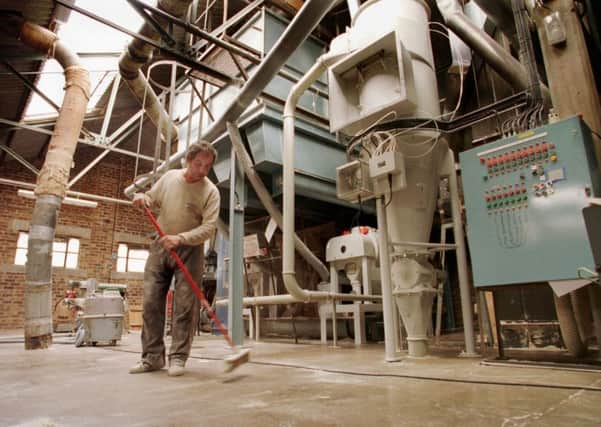Martin Flanagan: UK economy displays a sickly pallor
This article contains affiliate links. We may earn a small commission on items purchased through this article, but that does not affect our editorial judgement.


Time has taught that if it is not quite an intractable problem, it does a good impression of one.
The latest GDP figures underline the point. The economy grew 0.2 per cent in the first three months of 2017, down from an initial estimate of 0.3 per cent.
Advertisement
Hide AdAdvertisement
Hide Ad• READ MORE: Scottish economy fears as UK growth revised downward
A key component of the slowdown was unhelpful trading figures (at the heart of the economic rebalancing argument, with politicians and economists wanting exports and business investment to form a bigger part of the cake).
Exports were downwardly revised to -1.6 per cent, from +0.5 per cent initial estimates, while imports surged 2.7 per cent. This is particularly disappointing, as UK exporters had the distinct advantage of a big devaluation in the pound last year following the Brexit vote.
It is an exaggeration, though based on gathering evidence, but some of the more bearish City analysts are now suggesting the UK might be the sick man of Europe.
These latest GDP figures drag the UK’s annual rate of growth down to 2 per cent from 2.1 per cent. This compares with 3 per cent annualised growth in Spain, and 0.8 per cent Spanish growth in the first quarter of this year. Overall eurozone GDP expanded by 0.5 per cent in the quarter.
The UK economy, for so long outperforming the eurozone, not least during the latter’s sovereign debt crisis of yesteryear, is now bumping along the bottom of European growth with politically riven, economically drifting Italy.
Advertisement
Hide AdAdvertisement
Hide AdThe UK’s services sector came under pressure as widely predicted, given the double-clamp of stagnant earnings and rising inflation. The services industry, nearly four-fifths of the economy, saw output revised down to 0.2 per cent from 0.3 per cent in the first quarter, way down from its 0.8 per cent expansion between last October and December.
In short, what has been our rabbits’ foot sector for so long is now looking stretched and may not consistently get us out of trouble, while manufacturing, construction and exports are largely treading water.
It is not a heartening prospect, even before further Brexit uncertainty.